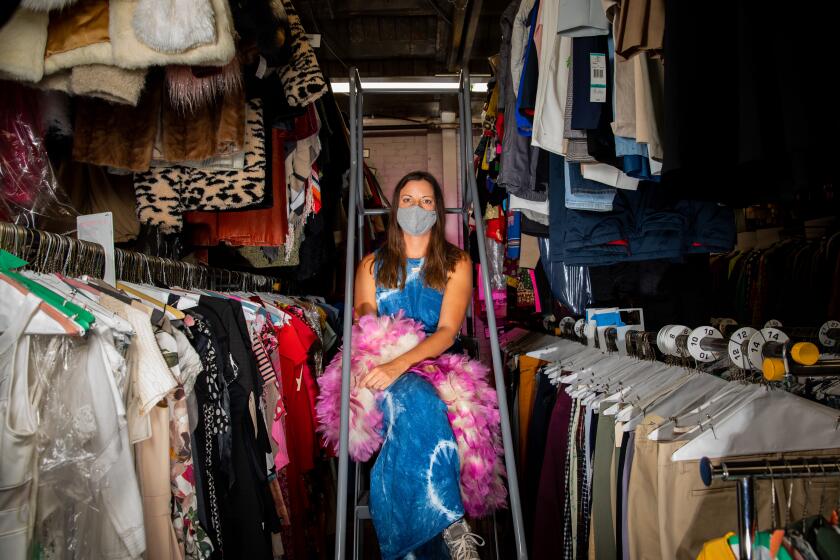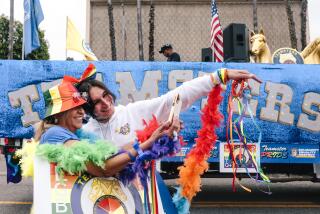Commercial producers agree to testing protocols as coronavirus spreads
- Share via
As COVID-19 hospitalizations surge in Los Angeles, a group representing commercial producers nationwide has agreed to adopt COVID-19 testing for workers on sets.
The agreement — which would bring safety protocols on commercial sets more in line with those used on film and television productions — was reached Monday with Hollywood’s major unions, according to a person close to the talks who was not authorized to comment.
The Assn. of Independent Commercial Producers, which represents independent companies that specialize in production of film and digital commercials for advertisers and agencies, declined to comment.
Crew members have raised concerns in recent months with entertainment industry unions about the disparity between COVID-19 on commercial and other productions. Those anxieties were heightened this summer after the death of 51-year-old assistant director John Nolan from complications related to COVID-19 after he worked on a commercial set in Texas.
Unions including the Teamsters Local 399 Hollywood and the Directors Guild of America have been in talks with the AICP for weeks about potentially adding testing to their safety requirements.
Commercials have driven Hollywood’s production restart in wake of pandemic, but some crews and unions say safety enforcement still falls short
Until now, testing for fevers or for the presence of the virus in a crew member wasn’t required under AICP guidelines. Instead, crew were simply asked to complete a questionnaire about potential symptoms.
Los Angeles County health officials have exempted short-running productions such as commercials from testing workers. But earlier this year hundreds of crew members signed a letter to the International Alliance of Theatrical Stage Employees, calling for more stringent COVID-19 safety protocols for those working on commercial sets.
It is unclear whether the testing requirements will be as stringent as those that apply to larger film and TV productions, where crew and cast are tested before they come on set and in some cases multiple times to prevent any outbreak. While filming, they are split into different zones based on proximity to actors who might not be wearing masks, or where crew cannot socially distance in their jobs.
Commercial productions are big employers in Southern California and have accounted for much of the film activity in L.A. since filming restarted in June. In the third quarter, on-location L.A. shoot days dropped 55% compared with a year earlier as a result of the COVID-19 crisis.
Amid a surge in coronavirus infections, this week members of the Alliance of Motion Picture and Television Producers agreed to report any positive tests on productions to the major Hollywood unions.
To protect the privacy of workers, studios will report only the number of individuals and where and when they worked on set, according to the agreement posted on the Directors Guild of America website.
The so-called side-letter agreement also asked producers to notify unions of their COVID-19 testing plans during the holiday period and the intended duration of the holiday break, when relatively little filming occurs.
Despite strict safety requirements that have increased the costs of productions, some locally produced shows, including ABC’s “The Rookie,” have had crew test positive for COVID-19.
The long-running soap opera “The Bold and the Beautiful” had to halt production after inconsistent test results.
Positive test cases also temporarily disrupted major movies such as “The Batman” and “Jurassic World: Dominion” filming in Britain.
Keeping production flowing during the pandemic has been a challenge for the city.
This week, city officials had to intervene to keep open a COVID-19 testing site at Union Station, after a public outcry over a decision to close the facility to allow for a film shoot.
More to Read
Inside the business of entertainment
The Wide Shot brings you news, analysis and insights on everything from streaming wars to production — and what it all means for the future.
You may occasionally receive promotional content from the Los Angeles Times.












